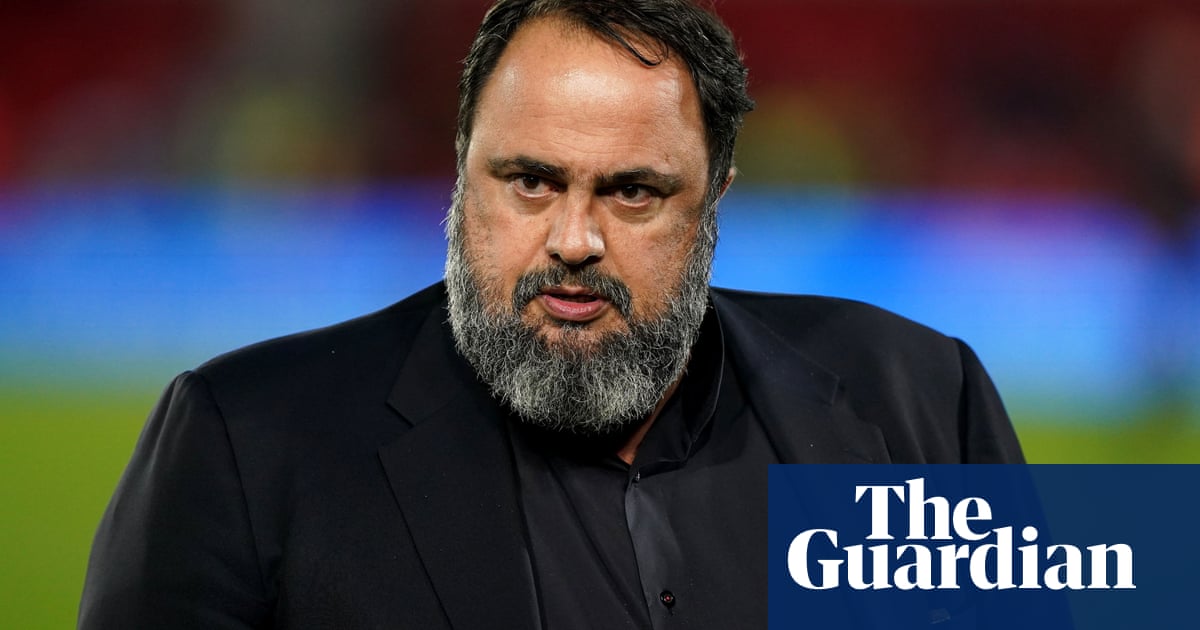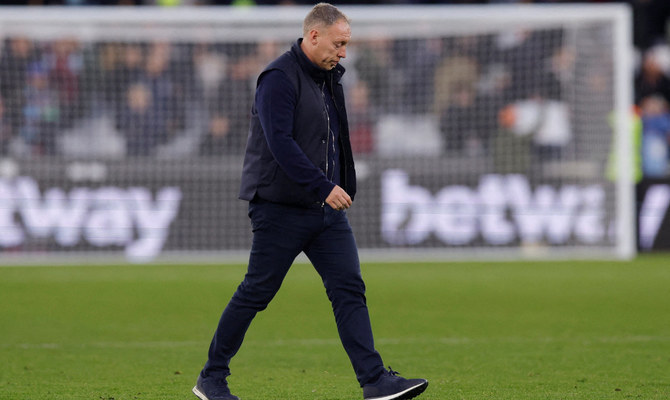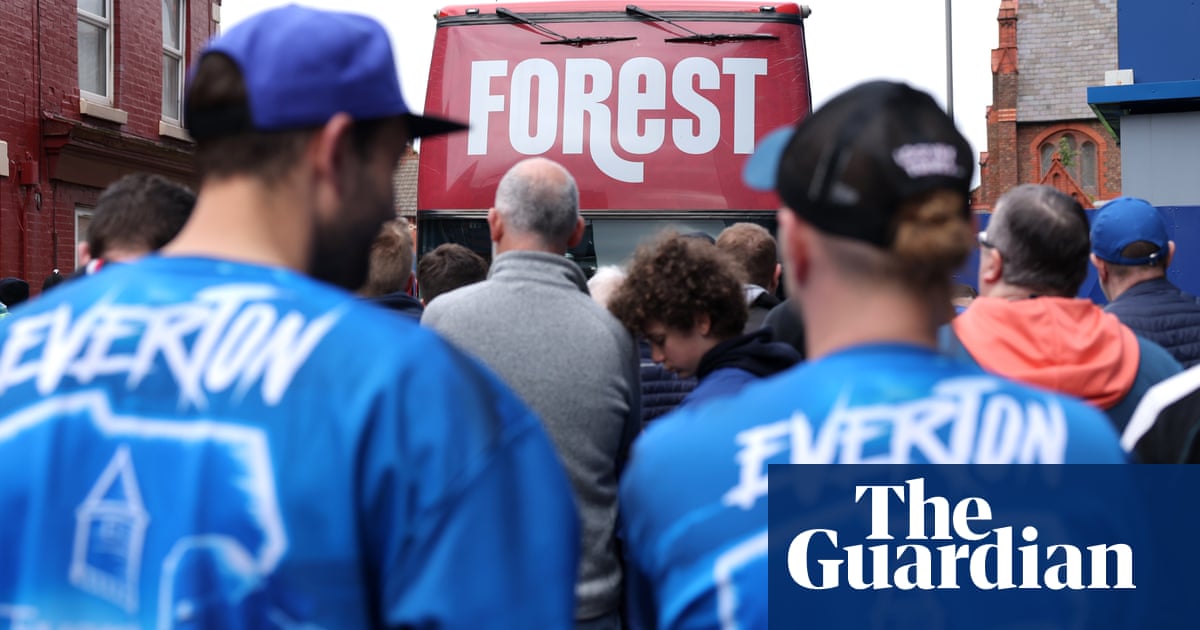
When Nottingham Forest spent £150m in one transfer window in the summer of 2022, it was supposed to be a sign of ambition. It is not cheap being a Premier League club, and building a squad capable of staying up – never mind challenging for trophies – is an expensive business. But it also takes careful planning to assemble an elite team and when Forest ripped up that blueprint they accelerated the process that has led to a charge of breaching profit and sustainability rules.
The Premier League charge, which could lead to a points deduction, relates to a three-year period that includes Forest signing 31 players in the season after promotion. Strange as it may seem now, everything had started calmly in June 2022 when the club broke their transfer record to buy Taiwo Awoniyi from Union Berlin for about £17.5m. The striker was a marquee signing who went on to score the goals that, arguably, kept Forest up and, by Premier League standards, the cost was low for a capable No 9. Undoubtedly his price tag has risen since.
It was part of a strategy to bring in players from leagues where value could be found, and improve them before selling on. It would, potentially, make Forest profitable and sustainable. The then chief executive, Dane Murphy, and head of recruitment, George Syrianos, put the plan in place, working alongside the head coach, Steve Cooper, but there was a desire from elsewhere in the club to make greater waves in the market.
The heavy spending started later in that summer window when conflicting transfer strategies started coming into play and wages ballooned. The owner’s son, Miltiadis Marinakis, was prominent in recruitment, bringing in Jesse Lingard, Cheikhou Kouyaté, Emmanuel Dennis, Remo Freuler, Willy Boly and Serge Aurier. Their CVs were impressive, as were their salaries, but whether they were natural fits for Cooper’s style was up for debate as the transfer policy became increasingly scattergun.
Even before promotion, the finances were striking at Forest. Wage expenditure in 2020-21 and 2021-22 was 202% and 197% of turnover respectively.
Murphy and Syrianos implemented a data-driven approach in 2021 and looked to reduce the wage bill while creating a team capable of challenging for promotion. They did not want a repeat of Harry Arter, who joined from Bournemouth in September 2020 on a four-year deal currently worth about £40,000 a week. The former Republic of Ireland international is still at the club but his 14th and most recent appearance came in January 2021. Arter was one of three senior professionals, alongside Lyle Taylor and Cafu, left out of the 25-man squad registered for the Premier League last season as things became bloated at the City Ground.
Syrianos and Murphy did not last the season; their more controlled methods did not suit the ambitions of Evangelos Marinakis and the handbrake was removed. Filippo Giraldi was installed as sporting director in October 2022 but six months – and one mediocre transfer window – later he was shipped out once the incomings from the season reached 30. His signings of Jonjo Shelvey and Chris Wood were a folly of high wages and little output. The veteran centre-back Felipe arrived on hefty wages, estimated to be more than £90,000 a week, and helped the club stay up, but has been fit to start only once this season, bringing into question his suitability as a long-term signing. At least Felipe is still at the club; Shelvey had his contract terminated after eight months having fallen out with Cooper.
Careful planning brought Forest up to the Premier League and the discarding of Syrianos and Murphy changed the direction of travel. The admission that this was a mistake can be seen in the former’s return to the club as a consultant in August, eight months after his departure, in an attempt to look for more uncut diamonds.
Ross Wilson is the third person to oversee recruitment since promotion. His title is chief football officer and he is well thought of by those who have dealt with him inside and outside the club as he attempts to build a Premier League structure and bring stability.
There is a reason why sporting directors are becoming increasingly pivotal: someone who can control a budget and put in place a long-term strategy can allow a club to flourish. Short-termism in football is rarely positive because constant change in concepts and ideas can lead to wasted time and money.
In the latest summer window it was always a case of when, not if, Brennan Johnson would leave and how much Forest could get for him. His sale would be crucial to the club’s books regardless of when the transfer was concluded. An academy graduate of Premier League quality is a big asset in the world of profit and sustainability rules. The fact he was sold two months after the accounts cut-off, even though Forest achieved a fee of £47.5m, may not save them from a potential points deduction but does show business sense. Although conversations took place over potential moves for Paulo Dybala, Sergio Ramos and Alexis Sánchez, none were taken particularly far because their cost would have been a hindrance.
Everton went through a period of a similar lack of focus in the transfer market, resulting in an overspend on players that brought little to the club except high salaries. Football is moving on and clubs need to think smarter in an age of rules to stop excessive spending, even if many may not agree with them. With so much finance available in football, it pays to think smarter and longer term. Doing otherwise could cost clubs more than money.












